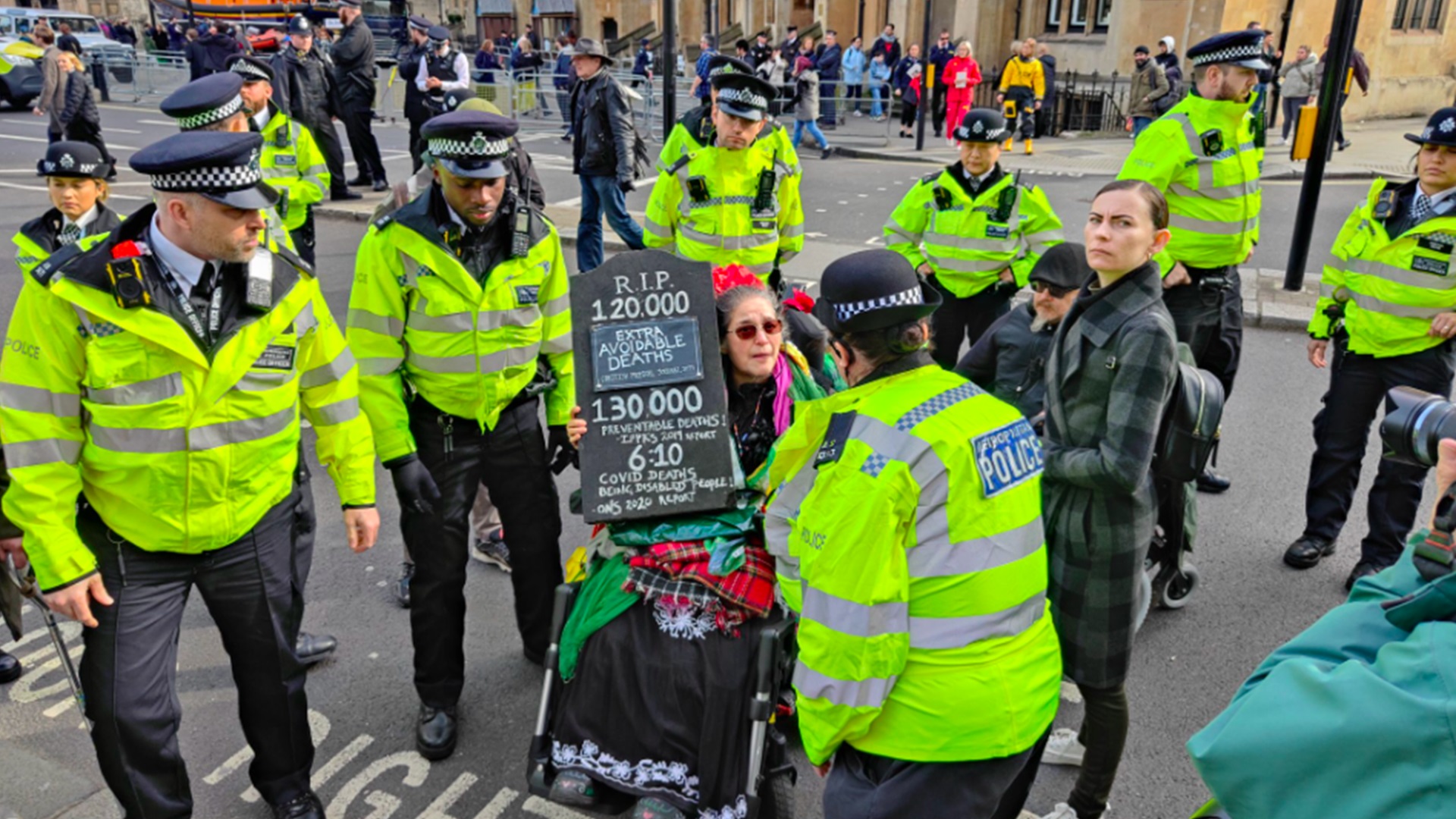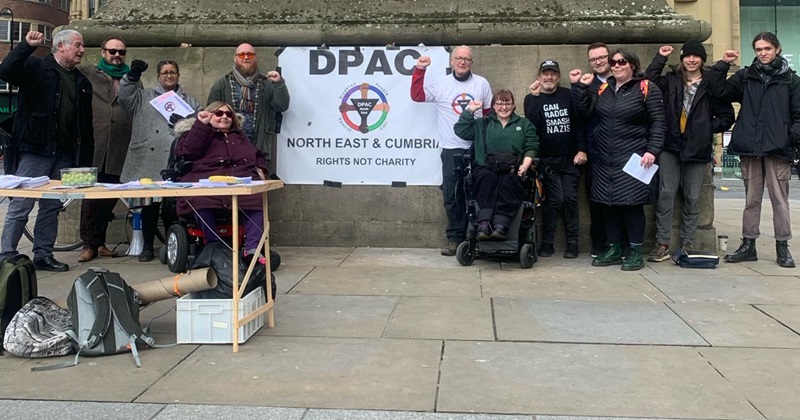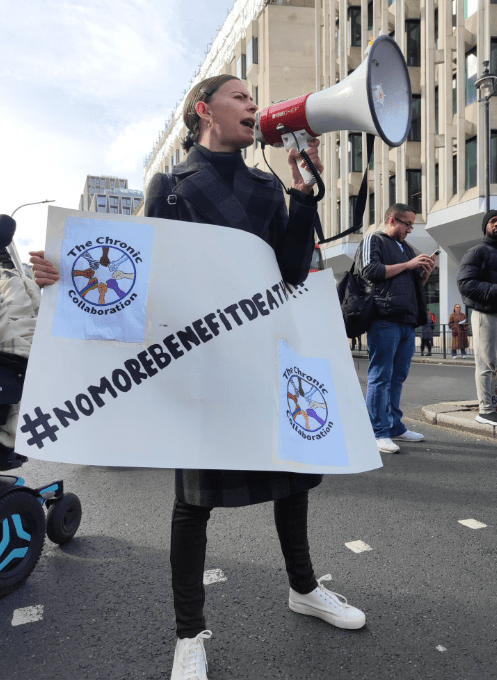“They say sanctions are issued as a last resort but is missing two meetings a last resort? He wasn’t a criminal, he worked all his life.” These were the words of Gillian Thompson about her brother David Clapton. David was an insulin-dependent diabetic who had served in the armed forces for eight years, prior to his death he cared for his mother, who had died 20 months before him. After missing two meetings at the Jobcentre, David had his benefits stopped. He was found dead five days later in 2013.
Ahead of the chancellor’s Spring Budget, activists from Disabled People Against Cuts (DPAC) across the country came together on Monday (4 March) to protest against the government’s plans to change the disability benefits system again.
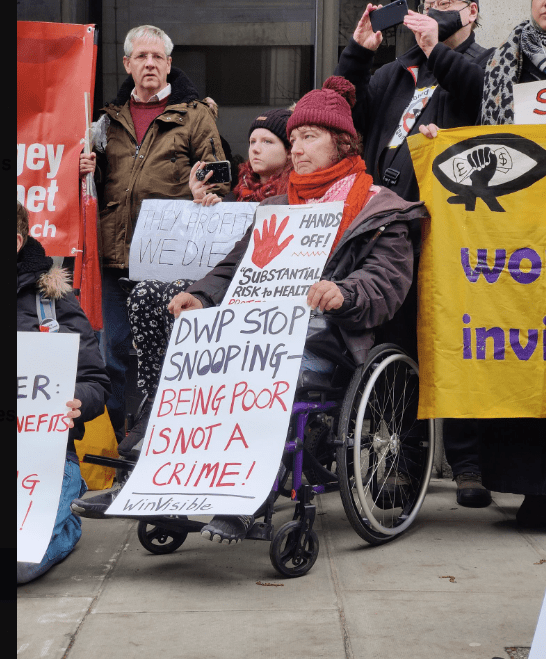
Under plans announced last autumn, the DWP plans to change the work capability assessment, making thousands ineligible for the extra support with plans to eventually scrap them. This will mean thousands who are too ill or disabled will be forced to look for work.
DPAC and other campaigners have warned the move could lead to many more deaths on top of others that have already died after being sanctioned or being declared fit for work. Protests took place in Newcastle, Edinburgh, Cardiff, Norwich and London.
“We are calling for active resistance across the UK to these brutal attacks on disabled people,” DPAC announced at the London protest, which saw the group bring the fight to the Department for Work and Pensions’ (DWP) doorstep, outside Caxton House. Speakers such as Gillian, Winvisible (a group campaigning for disabled women’s rights) and campaigner Paula Peters of DPAC called for no more ‘inhumane’ sanctions and denials of benefits. “Benefit sanctions have no place in our society, they’re cruel, barbaric and inhumane and they have to stop,” said Gillian.
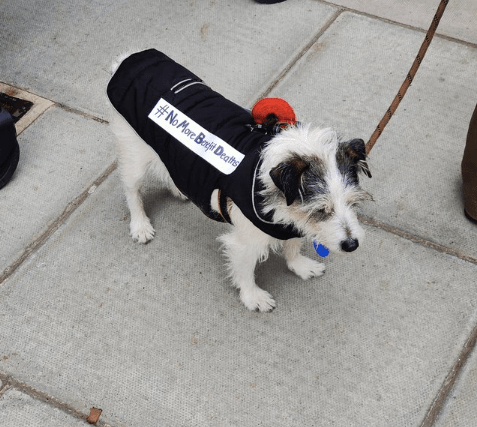
Ellen Clifford, a member of DPAC’s national steering group and author of The War on Disabled People told the Big Issue: “Government ministers say the way out of poverty is through paid work but realistically some disabled people are either too ill, in too much pain or mental distress to be able to work and employers don’t want us. A social safety net actually helps disabled people to take part in what activity we can, including paid employment. People pay their taxes expecting them to go towards supporting those most in need.”
